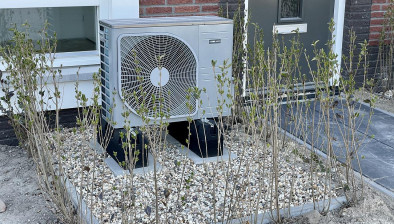Report claims 50 per cent renewable energy target by 2030 is necessary and achievable

A Warm Homes Act and a national energy efficiency programme will contribute towards the “necessary and achievable” target of producing half of all of Scotland’s energy across heat, transport and electricity from renewables by 2030, according to a new report.
A study published today by WWF Scotland, Friends of the Earth Scotland and RSPB Scotland sets out the actions required to meet the target in the most cost effective way and found that to do so 50 per cent of all energy will need to come from renewables by the end of next decade.
Based on independent analysis by global technical consultancy, Ricardo Energy and Environment, the report ‘The Energy of Scotland: Heating, moving and powering our lives from now to 2030’ suggests that by 2030:
WWF Scotland director Lang Banks said: “This report shows that a 50 per cent renewables target for all our energy needs by 2030 is not only needed, but that it is achievable. Ministers should now make this a Scottish Government target and bring in the policies needed in its forthcoming energy strategy. Doing so would enable Scotland to enjoy the many economic and social benefits that the report suggests would take place as result of generating half of all our energy needs from renewables.
“Scotland is already seeing the economic and social benefits of shifting our electricity system to clean, climate-friendly, renewables generation. However, with electricity accounting for just one quarter of our energy use, it’s time to begin to reap the same benefits by increasing the use of renewables in our heat and transport sectors.”
Colin McNaught, managing consultant at Ricardo Energy & Environment, said: “Our analysis provides the most sophisticated model yet for what Scotland’s energy system will look like in 2030 if climate targets are to be met in the most cost-effective way. A major transformation across all the energy sectors will need to take place, but the technologies are already available and Scotland has the renewable resources to supply them.”
 The report comes as the Scottish Government develops a new energy strategy, and follows manifesto commitments from several political parties to a 50 per cent renewable all-energy target.
The report comes as the Scottish Government develops a new energy strategy, and follows manifesto commitments from several political parties to a 50 per cent renewable all-energy target.
Energy minister Paul Wheelhouse said: “The Scottish government welcomes this report, which is a useful contribution to the ongoing debate around the future of energy in Scotland.”
Chief executive of Scottish Renewables, Niall Stuart, said it was time to “lift our horizons and set an ambitious target to drive investment in renewable heat, power and transport through the 2020s”.
He added: “This report echoes Scottish Renewables’ call for a new 50 per cent renewable energy target and, importantly, concludes that this is both achievable and key to meeting our climate change targets.”
Scottish Labour economy spokeswoman, Jackie Baillie, said: “Labour welcome this report which shows Scotland is well placed to fulfil our ambition to green our future energy use.
“That’s why we have an aspiration to generate 50 per cent of our heat and transport demand from renewables by 2030 and ensure that no-one is left behind as we make our way to a low-carbon economy.”
Mark Ruskell, energy spokesman for the Scottish Greens, added: “What Scotland has to do to meet its climate targets by 2030 have been clearly set out in this report.
“The findings are more than achievable, so long as the government shows enough ambition and determination to adopt the recommendations.”









